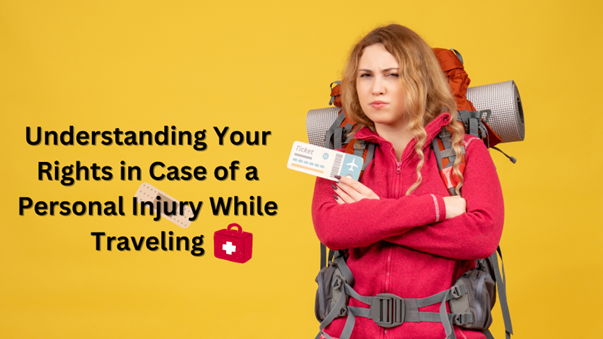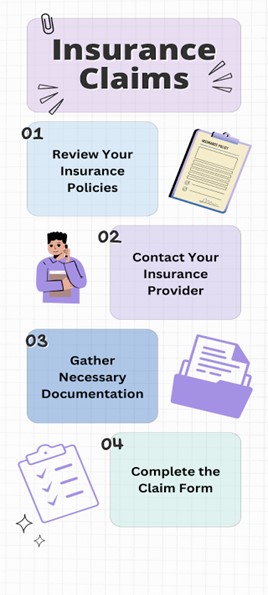
Are you prepared for the unexpected when traveling, like dealing with personal injuries? Whether you're exploring a new city or embarking on an international journey, understanding your rights and the legal landscape around travel-related injuries is essential.
This guide will walk you through the complexities of personal injury claims while traveling, helping you stay informed and prepared to protect your rights and seek fair compensation if necessary.
Establishing fault is a critical first step in personal injury claims while traveling. To succeed in a personal injury claim, it is essential to prove liability, which varies depending on where the injury occurred.
Virginia Beach, a popular coastal destination, sees millions of visitors each year. While most trips are enjoyable, the city faces its share of travel-related accidents and injuries, particularly during peak tourist seasons.
For those unfortunate enough to experience such incidents, navigating the legal aftermath can be challenging. A personal injury attorney Virginia Beach can provide invaluable guidance through the complexities of travel-related injury claims, helping victims understand their rights and pursue fair compensation.
"Duty of care" refers to the expectation that individuals and businesses act with respect for the safety of others. The same duty of care applies to hotel owners, tour operators, or even fellow travelers. If you can prove that someone was negligent and that their negligence caused your injury, you may deserve compensation.
Legal standards and possible damages would also depend upon the jurisdiction in which an injury occurred. In the United States, for example, the State may have comparative negligence laws that allow for partial fault and, therefore, a slight percentage of damages based on shared liability.
In addition, if businesses or individuals from more than one region are involved, the issue of liability may be much more complicated, especially in the case of multinational corporations. In such cases, consulting with a personal injury lawyer Virginia Beach can help clarify your legal options.
One of the first hurdles that any travel personal injury claim must overcome is where exactly you should file your claim, given that it may be a major determining factor in the success of your case.
The location of the incident usually determines where you should file a claim; personal injury cases can be dismissed due to improper jurisdictional filing.
Secondly, jurisdiction is affected by where you bought your travel services; travelers often don't understand how or why their place of purchase can matter in court. How much you will be awarded can vary profoundly based on the jurisdiction involved.
The concept of jurisdiction is more crucial for international travelers because sixty percent of international claims run into problems caused by different laws and regulations in different countries.
It will, therefore, be important to consult a personal injury attorney in Virginia Beach, who will be able to take you through the subtlety of these requirements in determining the most applicable jurisdiction for your case.
Travel insurance plays a vital role in covering medical costs and other expenses related to injuries abroad. Travelers report feeling more secure knowing they have travel insurance.
Standard Health Insurance Limitations: It's important to note that standard health insurance policies typically do not cover out-of-network emergency care abroad, making travel insurance essential for international trips.
Before relying on your insurance, it's crucial to understand its limitations:
Common Misconceptions: Travelers mistakenly believe their health insurance covers all incidents while traveling, leading to unexpected expenses.
High-Risk Activities: Be aware that travel insurance claims are denied due to participation in activities deemed high-risk without appropriate coverage.
Waivers of liability are familiar to travelers, particularly when engaging in adventure activities. For example, most extreme sports participants report signing a waiver of liability before being allowed to engage in their chosen sport.
Regarding legal effect, it is largely a matter of where the waiver is located. Some states do not allow the waiver to apply to gross negligence, which greatly affects the results of liability. Second, although the courts commonly accept most of the waivers, they can be successfully disputed in case an individual can prove negligence.
Those people who may seek legal advice after signing the waiver are most likely to succeed in disputing such a waiver. Thus, the understanding of the implication of the waiver agreement before participation is important.
As so many employees become injured on the job due to traveling for their jobs, a proper education of the differences between workers' compensation and personal injury claims is important for the injured.
While workers' compensation may allow benefits for an on-the-job injury regardless of fault, its allowance of compensable damages can be severely limited. Personal injury claims may broaden compensatory options but proof of fault may be required, complicating the claims process.
Whether you are entitled to compensation depends on many factors, such as the nature of the travel, considering that business travel could differ from personal travel, and the extent of your injuries, considering that severe ones can afford the injured persons more compensation than those covering medical expenses.
There is also a need for consideration in making claims for compensation concerning the long-term effects of these injuries, possible future medical attention, and loss of earning capability.
Taking the right steps immediately after an injury can significantly impact your ability to claim compensation:
In particular, it is advisable to consult a personal injury attorney who has wide-ranging experience in travel-related claims where the injuries are severe or long-lasting, liability is unclear or disputed, foreign legal systems come into play, or insurance companies offer low settlements.
You must weigh the advantages of hiring a local attorney against those of hiring one from your home state when making your choice. Local attorneys convey more about the local laws and the court system that may be helpful to your case. For instance, a personal injury lawyer Virginia Beach would be well-versed in local laws and procedures that could affect your case.
A home state attorney may be much easier to communicate with and follow up on. Most personal injury attorneys work on a contingency basis, which means they won't get paid unless they win the case; that allows many travelers legal representation.
Understanding your rights after a personal injury while traveling is key to protecting yourself and securing fair compensation. Navigating through legal complexities, insurance claims, and liability waivers can be challenging, but being well-informed can greatly influence the outcome of your case.
If you sustain an injury during your travels, consult a professional personal injury attorney Virginia Beach. Their expertise can help clarify your rights and ensure you pursue the compensation you're entitled to.
1. What are the limitations on personal injury claims?
Personal injury claims have limitations such as time restrictions, jurisdictional laws, and proving liability.
2. How can you travel with an injury?
Traveling with an injury requires using mobility aids, carrying necessary medications, and notifying transport providers of your needs.
3. What is the personal injury clause of insurance?
The personal injury clause in insurance covers costs related to injuries from accidents, as defined by the policy.